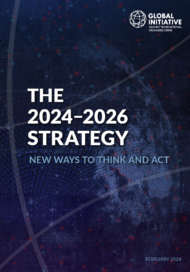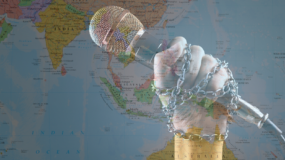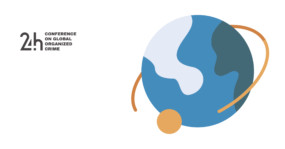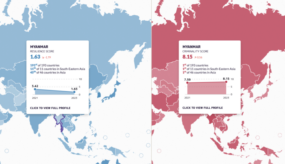Posted on 01 Jun 2021
This special issue aims to explore the human impacts (e.g. impacts on livelihoods lives, human rights, freedom of expression etc.) of environmental crime – how people, communities and populations are affected by the illicit trade in and demand for environmental commodities.
This special issue aims to explore the human impacts (e.g. impacts on livelihoods lives, human rights, freedom of expression etc.) of environmental crime – how people, communities and populations are affected by the illicit trade in and demand for environmental commodities.
The human cost and impact of this trade can sometimes be a neglected area of research, where predominantly analysis has instead focused (understandably) on the impact on particular species survival and wider biodiversity concerns and impacts. It is now widely accepted that the trafficking in environmental commodities and the illicit exploitation of natural resources is dramatically affecting the biodiversity of the planet. And there is a growing discourse of analysis that explores how this trade and exploitation of our natural resources, at the same time, finances corruption and criminal actors as well as affecting governance systems in many regions around the world.
Resources – both natural and financial – are however being diverted from individuals, communities and populations and exacerbating fragility. In some cases, criminal, violent and/or exploitative actors, are engaging individuals and communities at various points along the supply chains to support the extraction, transport and sale (or disposal) of commodities. In many cases this can cause direct human harm and can impact upon the human rights, livelihoods, lives, freedom of expressions, etc. of affected individuals and communities. This call for papers therefore aims to understand the more direct human impacts of these trends and we welcome original contributions exploring the linkages and impacts of environmental crime on individuals and communities in all its dimensions.
In order to offer a broad empirical, qualitative approach, we welcome contributions from various disciplines, including (but not exclusively) sociology, economics, anthropology, history and international relations, as well as policy analyses from activists, NGO leaders, or practitioners. In this time of COVID-19 lockdowns and uncertainty within academia, we particularly encourage submissions by female scholars, precariously employed faculty-members, academics from less traditional backgrounds. We would also encourage geographically specific contributions from Asia and we may be able to provide language and translation support for original contributions not in English. Please contact the co-editors (below) to discuss possibilities.
Deadline for submission of abstracts/LOIs: 31st July 2021.
Planned date of publication: February 2022.
Please submit your abstract and bio to the co-editors:
- Ms Louise Taylor, Asia-Pacific Representative, GI-TOC, louise.taylor@globalinitiative.net; and
- Ms Virginia Comolli, Research Manager, GI-TOC, virginia.comolli@globalinitiative.net; and
- Mr Virak Ou, Founder, Future Forum,
ouvirak@futureforum.asia



